How To Install a SuperQuilt Curtain
If you are interested in understanding how our customer transformed their workspace with a SuperQuilt curtain, or if you have a similar project, keep reading…
view_day Insulation Materials
Method Steps
-
Installing First Run of SuperQuilt
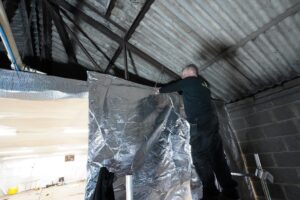
Firstly roll out the SuperQuilt to the desired legnth and attach the SuperQuilt to wooden purlins or rafters using staples or nails at 200mm intervals, we recommend to lip the SuperQuilt round the top of the Purlin and staple onto the back of the purlin as shown in our image below. This will allow the purlin to take the weight of the SuperQuilt.
-
Cutting SuperQuilt
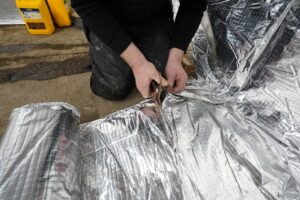
Cut SuperQuilt to the desired legnth using a sharp pair of Multifoil Scissors or sharp blade. Ensure that you have left enough material for step 3.
-
Installing Wooden Battens / Weights
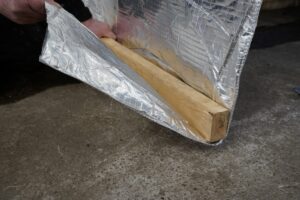
We recommend to use 50mm joists to act as a weight for the bottom of the curtain, this will prevent the curtain from moving and will give a rigid finish to the application. Lip the SuperQuilt over the joist and staple onto the top. You can then trim off any excess material if required.
-
Installing Second run of SuperQuilt
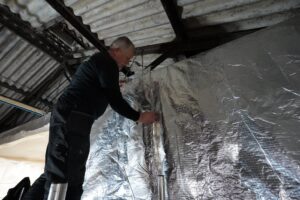
You can then proceed installing another run of SuperQuilt in the same method as step 1. We recommend to overlap the insulation by atleast 50mm to ensure the curtain can then be sealed.
-
Taping and Sealing Joints
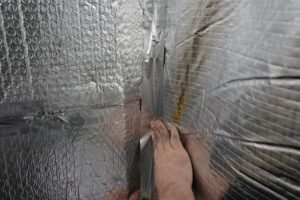
After the SuperQuilt has been installed we then recommend to tape and seal all overlaps using ThermaSeal Foil Joining Tape. This will prevent draughts and cold from entering the usable space and seal the curtain together.
-
Creating a Door Panel
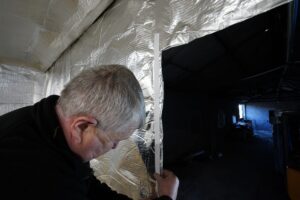
SuperQuilt can be cut vertically and then horizontally to then create an insulated door panel. We recommend to tape over the joints using ThermaSeal Foil Tape and use a velcro hook and loop to open and close the door
-
Finsished Application
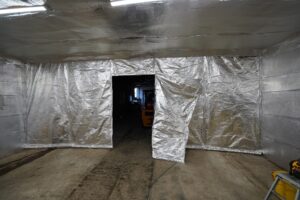
You will now have created an insulated curtain with an opening and closing door. This will help retain heat in the working space while reflecting the cold away. During the summer months this will also reflect excess heat away, keeping the working space at a usable temperature, all year round.
Disclaimer – Ecohome Insulation cannot be held responsible for any losses financially or physically from advice provided in this How-To-Guide.
Recommended fixing materials and good building practice should also be used.
